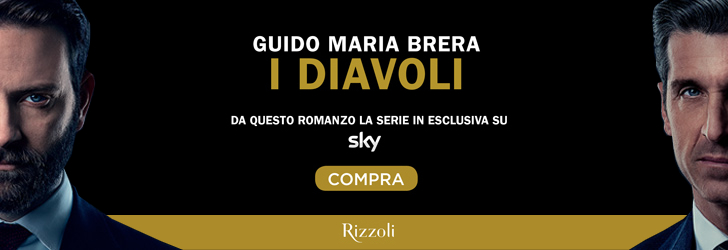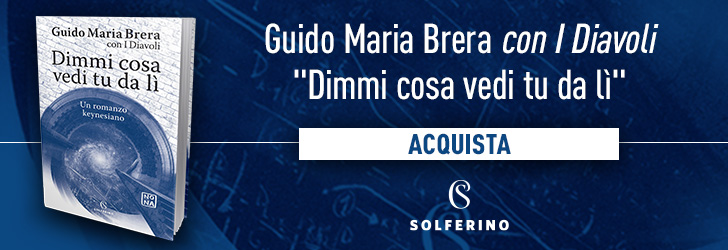
Decodificare il presente, raccontare il futuro
TREDICESIMO-PIANO
mar 31 maggio 2016
LOW COST
Can a t-shirt really satisfy a primary need through the transmission of an illusion of wealth?
May 20, 2016
The trolley zip gets stuck as an act of rebellion. It simply does not want to move back or forward despite the efforts of Philip Wade’s hand. He thinks at the European inability to find a new direction for its project. With these thoughts, he gives up. He brings his hand to the shirt collar and breathes in. He feels uncomfortable; he does not usually wear ties. He has never worn ties, not even when he was at the big bank; he used to prefer crew-neck sweaters which looked like a provocation to the dress-code of the financial community he had joined up in London City. He breathes in once again, turning his back to memories. Time is a balm.
Now a different hand comes back to the zip. Also the trolley zip seems different: it suddenly accepts its luggage fate.
Professor Wade knocks to the first Black Cab window in the boulevard. The taxi-driver invites him to take a seat before getting off the car and placing his trolley in the car boot. When the man gets back to his seat, Philip makes eye contact through the rear-view mirror and says: «Heathrow, Terminal 5, please». He is perfectly on time, but he feels a little tense.
He is thinking about the frenzy airport. It’s always busy in spring days. It is full of travellers and busier than the rest of the year. He thinks “sell in May and go away”. When he was a strategist for the big bank – in his previous life, before becoming a professor at Birkbeck College – financial masters used to lay their weapons down in May, moving their summer holidays up. He knows it is like a mantra for financial professionals. And he would put a £100 bet on the fact that their old fellow colleagues are now getting ready for the next check-in, that they are in the same situation he is now, but for different reasons.
The taxi stops at the traffic light on Brompton Road. Phil looks at the street around him, where Harrods big building stands out: five floors and three hundred departments, from food to high fashion. In Harrods, clothes look like artworks. In some way, it is the most visited museum of London. It is a British icon, a symbol of luxury, a large-scale shopping temple. Or better, it used to be… before the storm crushed the middle class from its hallways, before the change of consumption patterns, before the low-cost gravity swallowed the middle class towards the bottom of a tragic parody of prosperity.
«Who dresses the middle class’? » whispers Professor Wade. «Can a t-shirt really satisfy a primary need through the transmission of an illusion of wealth? »
The driver keeps driving without minding those words. The city starts running fast again, beyond the window.
Philips thinks back on the years he spent in Rome, when he and his old research buddy were studying with the economist Federico Caffè. He thinks back at his brilliant intuition on “State masochism”: a game where everybody loses but the poor ones loose more. He thinks back on Ezio Tarantelli, who referred to a “masochistic political exchange”, in 1995. New depreciation, the widely-accepted great scam, and social agreements leading to reduced wellness for workers and families.
Philip is drumming his fingers on his chin: it’s the same system that offers illusionary wealth at a really low price. On one hand, fast fashion, fast food and cheap technology, on the other hand, fundamental rights such as health, housing and education. We give the latter ones up and accept the first ones as a poor, illusory compensation. This is the middle-class control mechanism. We turn down fundamental rights for meagre rewards.
He whispers: «Masochists…»
And the taxi-driver «Are you talking to me? »
«I was thinking aloud, I am sorry» Phil says, rising his hand toward the mirror.
The airport is close. A few kilometres only to the strip and take off, a few hours only separate Philip from the 2016 Copenhagen Fashion Summit, dedicated to sustainability and fashion. Great chaos and fast pace are expected. Of course, he will not have time to do any sightseeing. Two days of debate, over 1,200 attendees and 52 participating countries. This year the main topic is sustainable innovation, and several representatives of the most important global brands are participating, along with journalists, activists, politicians and researchers. Among them, Professor Wade of Birkbeck College, University of London.
A plane is taking off, not far from the street and the taxi. In Copenhagen everyone will agree that the true challenge is to re-invent the economic development model in order to re-establish the balance between environment, society and business. Balance… Philip smiles. It’s impossible not to agree. This time, even Derek Morgan, the Wall Street banker and previous boss – even him, this time – would agree.
Red traffic light, the Black Cab slows down. Phil takes advantage of it to gather his notes and review his speech. He feels insecure and ordinary. He has been teaching for ten years. Since he left the big bank and changed his life, he has given several speeches in front of hundreds of students. However, he has not attended a public summit for a long time. So long in fact, that upon receipt, he instinctively thought his invitation for Copenhagen was sent by mistake.
“We need a holy alliance in order to trigger this revolution” he writes down, shaking while the taxi steers through a curve. “We need to establish a green phone line, a direct communication channel between producers and consumers, between fashion industry and civil society”. His unsteady hand deletes the last sentences and writes in capital letters: “A non-masochistic political agreement” and draws a circle around the word “masochistic”. Followed by a second one.
He stops, leafs through his notes desperately looking for the first draft of his speech: “Quoting Tarantelli: now there is no room for a social accord, but the political exchange between social parties is possible. In order to turn upside down what I would call the “theoretical reference paradigm”. He repeats the sentence a few times, whispering.
The taxi-driver does not listen; they are in Heathrow, directly heading to Terminal 5. Behind him, Philip concludes with what appears to be a Manifesto:
1. Environmental protection
2. Sustainable management
3. Protection of workers’ rights and health
These are the keys to dismantle the system, he repeats to himself. The Fashion Submit will try to put such a system into question. However he is still cannot answer the question “Who dresses the middle class?”
The signs show they arrived at Terminal 5. Half-an-hour drive, all those miles, and he still does not have an answer. Maybe – he thinks while squeezing his lips – this is not the right question.
“How much does it cost?” he says, while giving a hint of a smile. This is the right question.
«Sixty-six Pounds» says the driver while pulling over.
He was not talking to him but it doesn’t matter. Professor Wade takes his wallet out from the jacket pocket and pays by cash. Then he wears his coat, picks up his luggage and starts walking towards the check-in desk.
What is the true cost of fast fashion? He asks himself. From the human, environmental and social point of view. Is it worth to exchange our rights for super-fast connection? For a pair of jeans manufactured by people who are paid thirty euros per month?
«Of course not» Philip says.
He probably said it aloud. The hostess at the desk is looking at him in a funny way, while she delivers his ticket. That might be an impression, because she immediately says: « British Airways wish you a happy journey, Mr Wade».

